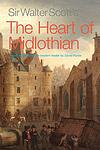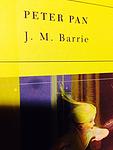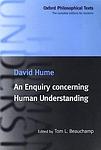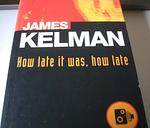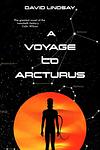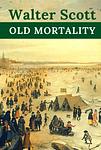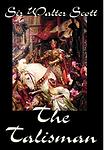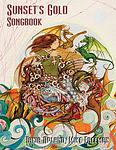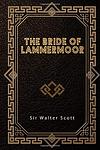The Greatest Scottish, Brazilian Books of All Time
Click to learn how this list is calculated.
This list represents a comprehensive and trusted collection of the greatest books. Developed through a specialized algorithm, it brings together 300 'best of' book lists to form a definitive guide to the world's most acclaimed books. For those interested in how these books are chosen, additional details can be found on the rankings page.
Genres
Countries
Date Range
Reading Statistics
Click the button below to see how many of these books you've read!
Download
If you're interested in downloading this list as a CSV file for use in a spreadsheet application, you can easily do so by clicking the button below. Please note that to ensure a manageable file size and faster download, the CSV will include details for only the first 500 books.
Download-
1. The Prime of Miss Jean Brodie by Muriel Spark
The novel is set in 1930s Edinburgh and follows the story of six girls under the tutelage of an unconventional teacher, Miss Jean Brodie. Miss Brodie, in her prime, takes it upon herself to educate the girls about life, love, politics, and art, often disregarding the traditional curriculum. The narrative explores the influence of Miss Brodie on the girls, the consequences of her nonconformist teachings, and the ultimate betrayal that leads to her downfall.
-
2. The Alchemist by Paulo Coelho
A young Andalusian shepherd named Santiago dreams of finding a worldly treasure and sets off on a journey across the Egyptian desert in search of it. Along the way, he encounters a series of characters who impart wisdom and help guide his spiritual journey. The novel explores themes of destiny, personal legend, and the interconnectedness of all things in the universe. The boy learns that true wealth comes not from material possessions, but from self-discovery and attaining one's "Personal Legend".
-
3. The Private Memoirs and Confessions of a Justified Sinner by James Hogg
Set in 18th century Scotland, the novel explores the psychological downfall of a deeply religious man who believes he is predestined for salvation and thus justified in committing a series of murders. He is driven to this path of self-destruction by a mysterious stranger who may be either a devilish tempter or a manifestation of his own deranged mind. The book serves as a critique of religious fanaticism and a chilling exploration of the dark side of human nature.
-
4. The Wealth of Nations by Adam Smith
This influential economic book presents a groundbreaking theory that argues for free market economies. The author posits that individuals acting in their own self-interest within a system of natural liberty will result in societal benefit, a concept often referred to as the "invisible hand" theory. The book also critiques mercantilism and explores concepts such as the division of labor, productivity, and free markets. It is widely considered one of the foundational texts in the field of economics.
-
5. The Hour of the Star by Clarice Lispector
"The Hour of the Star" is a poignant narrative that explores the life of Macabéa, a poor, unattractive, and naive typist living in the slums of Rio de Janeiro. The story is narrated by Rodrigo S.M., a sophisticated writer who struggles with how to accurately portray Macabéa's simple existence and her tragic fate. The novel delves into themes of identity, poverty, and the human condition, presenting a stark contrast between the lives of the rich and the poor, the educated and the ignorant, and the beautiful and the plain.
-
6. The Devil to Pay in the Backlands by Joao Guimaraes Rosa
"The Devil to Pay in the Backlands" is a complex narrative that follows the life of a Brazilian sertanejo (backlands dweller) who becomes a bandit and a feared killer. Tormented by his violent actions, he embarks on a metaphysical journey, wrestling with philosophical and religious questions, and trying to reconcile his deep belief in fate and predestination with his own free will. The book is notable for its innovative language, blending regional dialects with neologisms and classical references, which adds to its rich portrayal of the Brazilian backlands.
-
7. The Posthumous Memoirs of Bras Cubas by Machado de Assis
The novel is a unique and satirical work, narrated by a dead man, Bras Cubas, who recounts his life from beyond the grave. The story is filled with ironic humor and philosophical musings as Bras Cubas explores his past, his relationships, and the societal norms of his time. The narrative breaks conventional storytelling norms, often addressing the reader directly and jumping through time without warning. Themes of love, wealth, power, and the human condition are explored, providing a critique of 19th-century Brazilian society.
-
8. Lanark by Alasdair Gray
"Lanark" is an unconventional narrative that combines elements of fantasy, dystopia, and realism. The protagonist, a man named Lanark, moves through two parallel existences. In one, he's a young man named Duncan Thaw in post-war Glasgow, struggling with his artistic ambitions and personal relationships. In the other, he's Lanark in the grim, bureaucratic city of Unthank, suffering from a mysterious skin condition and grappling with his identity and purpose. The novel explores themes of love, alienation, creativity, and the human condition, presenting a complex and thought-provoking portrait of life and society.
-
9. Dom Casmurro by Machado de Assis
The novel is a darkly comic, yet tragic exploration of love, betrayal, and jealousy, told through the unreliable narration of the protagonist, a middle-aged man who believes his wife has cheated on him with his best friend. The narrative is filled with ambiguity and uncertainty, forcing readers to question the reality of the events described. The novel is also a profound exploration of the human psyche and the destructive power of obsession.
-
10. The Heart Of Midlothian by Sir Walter Scott
The novel is a historical tale set in 18th-century Scotland, revolving around Jeanie Deans, a young woman of strong moral character, who embarks on a daunting journey from Edinburgh to London to seek a royal pardon for her wrongfully accused sister, Effie, who faces execution. Along the way, Jeanie encounters various characters from different strata of society, confronting issues of justice, morality, and national identity. Her steadfast loyalty and unwavering principles highlight the cultural and social tensions of the time, as the narrative intertwines personal drama with broader historical events, including the Porteous Riots and the influence of the Scottish Reformation.
-
11. Peter And Wendy by J. M. Barrie
"Peter And Wendy" by JM Barrie is a beloved children's classic that tells the enchanting story of a young girl named Wendy Darling who, along with her two brothers, embarks on a magical adventure to the whimsical world of Neverland. There, they encounter the mischievous and eternal boy, Peter Pan, and his fairy companion, Tinker Bell. Together, they face thrilling escapades, battles with the villainous Captain Hook, and discover the importance of imagination, friendship, and the power of never growing up.
-
12. An Enquiry Concerning Human Understanding by David Hume
This philosophical work explores the nature of human knowledge, arguing that all of our understanding comes from experience rather than innate ideas. The author challenges the idea of causality, suggesting that our belief in cause and effect is based on habit rather than logical reasoning. The book also discusses the limitations of human understanding, including the inability to fully comprehend the concept of God or the soul, and the impossibility of certain knowledge. The author's skepticism about traditional philosophical concepts has had a significant influence on later philosophers and the field of epistemology.
-
13. The Passion According to G.H. by Clarice Lispector
"The Passion According to G.H." is a philosophical novel that delves into the existential crisis of a wealthy Brazilian woman who, after killing a cockroach in her maid's room, experiences a profound metaphysical crisis. The narrative unfolds as a stream of consciousness that explores themes of identity, existence, and the nature of reality. The protagonist's journey forces her to confront her own humanity, the concept of nothingness, and the chaotic, interconnected nature of life. It's a profound and introspective exploration of the human condition and the meaning of existence.
-
14. Trainspotting by Irvine Welsh
This novel is a gritty, raw portrayal of a group of heroin addicts living in Edinburgh, Scotland. The narrative is non-linear and told from multiple perspectives, providing a deep dive into the minds and lives of these characters. The story explores themes of poverty, addiction, friendship, and the struggle to escape one's circumstances, all set against the backdrop of a bleak urban landscape. It is known for its strong Scottish dialect, graphic content, and dark humor.
-
15. How Late It Was, How Late by James Kelman
The novel is a stream-of-consciousness narrative told from the perspective of Sammy, a shoplifter and ex-convict from Glasgow who wakes up in an alley after a two-day drinking binge to find he is completely blind. As Sammy struggles to navigate his new reality, he contends with bureaucratic systems, confronts his past, and grapples with his relationships, all while trying to understand and adjust to his sudden loss of sight. The story is a gritty exploration of working-class life, the human condition, and the nature of reality.
-
16. A Voyage To Arcturus by David Lindsay
"A Voyage to Arcturus" is a philosophical and allegorical novel that follows the journey of a man named Maskull to the planet Tormance, located in the star system Arcturus. As he explores this strange and mystical world, Maskull encounters various beings and experiences profound transformations, both physically and spiritually. Through vivid and imaginative storytelling, the book delves into themes of identity, morality, and the nature of reality, challenging readers to question their own perceptions and beliefs.
-
17. Rebellion In The Backlands by Euclides da Cunha
This book offers a detailed and vivid account of the War of Canudos, a significant peasant revolt that took place in the late 19th century in the Brazilian backlands. Through a blend of historical documentation and narrative, the text explores the socio-political conditions that led to the uprising, the charismatic leadership of Antônio Conselheiro, and the brutal suppression of the rebellion by the Brazilian government. The author delves into the geography, culture, and lives of the backland inhabitants, providing a deep analysis of the conflict as a reflection of the broader struggles within Brazilian society. This work is not only a historical account but also a profound commentary on the themes of civilization versus barbarism, social injustice, and the complexities of national identity.
-
18. Guy Mannering by Sir Walter Scott
The novel unfolds as a tale of prophecy and fate intertwined with the lives of its characters, primarily centering around Henry Bertram, the heir to the estate of Ellangowan, who is kidnapped as a child by smugglers after his father's financial ruin. The story spans over two decades, following Henry's adventures and misadventures as he grows up under an assumed identity. The narrative is rich with themes of loyalty, inheritance, and the supernatural, as the predictions of the astrologer Guy Mannering and the Gypsy matriarch Meg Merrilies play out in the lives of the Bertrams and their acquaintances. Set against the backdrop of the Scottish Lowlands, the tale weaves through a tapestry of social change and personal redemption, culminating in the restoration of family and fortune.
-
19. Old Mortality by Sir Walter Scott
Set in the 17th century during the Covenanting Rebellion in Scotland, the novel weaves a tale of adventure, romance, and political intrigue around the historical events of the time. The story follows the young hero, Henry Morton, who is caught between his loyalty to the Presbyterian Covenanters and his love for Edith Bellenden, a Royalist. As Morton becomes embroiled in the conflict, he must navigate a path through the tumultuous civil war, facing moral dilemmas and the consequences of his choices. The narrative also explores themes of honor, tradition, and the impact of history on individual lives, all while providing a rich portrayal of Scottish culture and the complexities of religious and political loyalties.
-
20. Macunaíma by Mario de Andrade
This book is a hallmark of Brazilian literature, blending folklore, social critique, and surrealism to narrate the adventures of its eponymous hero, a shapeshifting character of indigenous origin who embarks on a journey from the Amazon rainforest to the city of São Paulo. Throughout his quest to retrieve a magical amulet stolen by a fearsome giant, the protagonist encounters a myriad of mythical creatures, gods, and figures from Brazilian folklore, all while satirizing the cultural and social issues of early 20th-century Brazil. The narrative is celebrated for its inventive language, playful use of Brazilian vernacular, and its pivotal role in the Brazilian Modernist movement, offering a unique exploration of national identity, racial diversity, and the complex relationship between tradition and modernity.
-
21. The Talisman by Sir Walter Scott
"The Talisman" is a historical novel set during the Third Crusade, focusing on the conflict between Richard the Lionheart, King of England, and Saladin, Sultan of Egypt and Syria. The story explores themes of chivalry, honor, and the cultural clash between the Christian West and the Islamic East. The plot revolves around a talisman, which is believed to have healing powers, and the knight who is tasked with delivering it to Richard. The novel presents a nuanced view of both sides of the Crusade, highlighting the virtues and flaws of each.
-
22. Veronika Decides to Die by Paulo Coelho
The novel centers around Veronika, a young woman from Slovenia who, disillusioned by her life and the world, decides to commit suicide. Surviving her attempt, she wakes up in a mental institution where she learns that her failed attempt has left her with only a few days to live. During her stay, she meets a variety of characters, each with their own mental issues, who help her to see her life in a new perspective. The story explores themes of madness, individuality, and the value of life, challenging societal norms and questioning the meaning of sanity.
-
23. The No. 1 Ladies' Detective Agency by Alexander McCall Smith
The book follows the story of Precious Ramotswe, a woman in Botswana who opens the country's first and only female-run detective agency. She uses wisdom, intuition, and her understanding of human nature to solve various cases, from missing husbands to wayward daughters and con men. The story is not just about solving mysteries, but also provides a deep insight into the culture, landscape and people of Botswana.
-
24. Sunset Song by Lewis Grassic Gibbon
Set in the early 20th century in the fictional estate of Kinraddie in Scotland, the narrative follows the life of a young woman, Chris Guthrie, as she comes of age amidst the challenges of rural Scottish life. Torn between her love for the land and the pull of modernity, Chris navigates personal loss, the impact of World War I, and societal changes. The novel poignantly explores themes of identity, resilience, and the enduring connection to one's heritage, against the backdrop of the sweeping agricultural and social transformations of the time.
-
25. The Bride Of Lammermoor by Sir Walter Scott
Set in the tumultuous 17th century Scotland, this tragic novel weaves a tale of doomed love and political intrigue. The story centers around the passionate and ill-fated romance between Edgar, the Master of Ravenswood, who is impoverished and seeking to restore his family's honor, and Lucy Ashton, the daughter of his father's political enemy. Their love is challenged by societal pressures, family enmity, and a relentless twist of fate, leading to a dramatic and harrowing conclusion that underscores the destructive power of vengeance and the inevitable tragedy that can arise from the rigid constraints of honor and duty.
Reading Statistics
Click the button below to see how many of these books you've read!
Download
If you're interested in downloading this list as a CSV file for use in a spreadsheet application, you can easily do so by clicking the button below. Please note that to ensure a manageable file size and faster download, the CSV will include details for only the first 500 books.
Download








